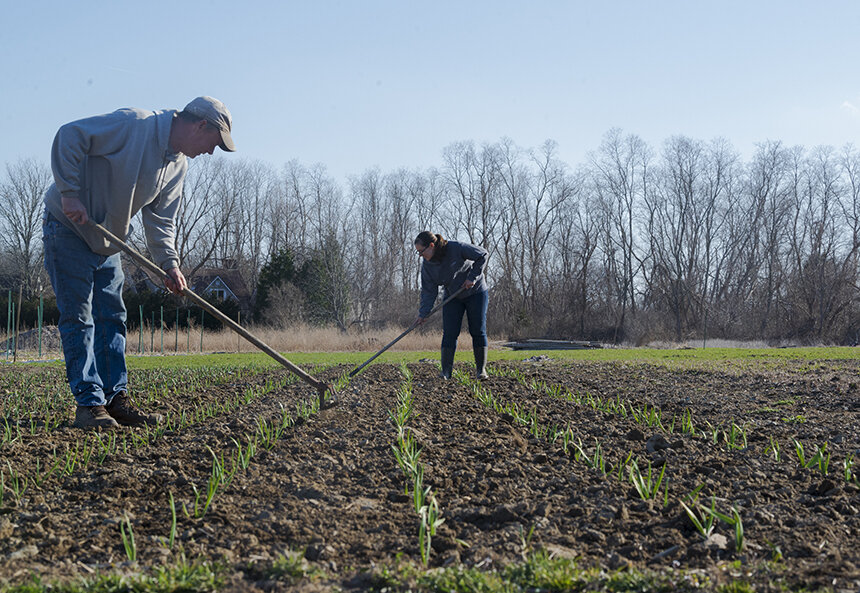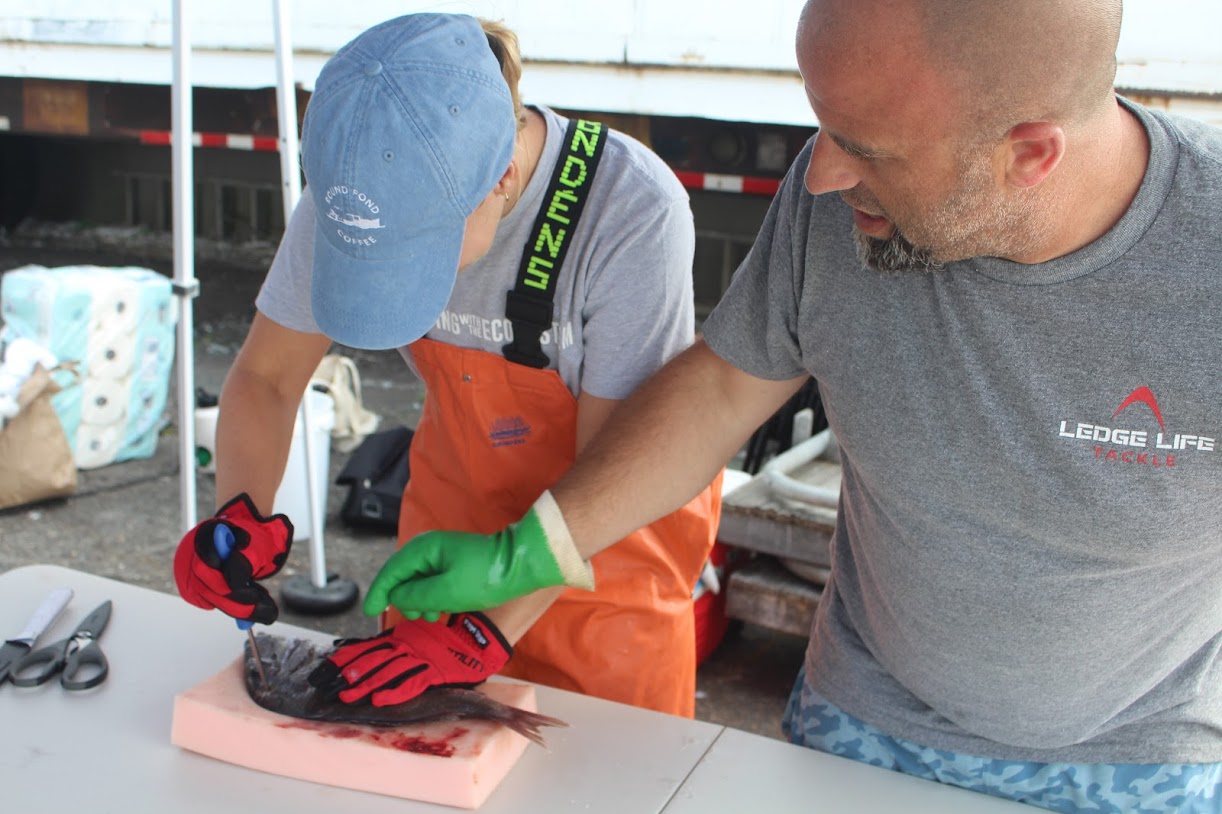MLK Center to Expand Popular Program to Provide Produce Year-Round to Those in Need
October 8, 2020
“There’s usually a line of people waiting to get the vegetables,” said Heather Hole Strout, the center’s executive director. “Right now, we encourage people to take as much as they can use, because we have so much.”
Starting this fall, Veggie Days won’t be just a summertime occurrence. Though the program usually runs from June through early October, the MLK Center now plans to offer produce year-round.
“A few weeks ago, we were talking about how Veggie Days is coming to an end, and I was thinking, ‘Well, why would we end this?’” Strout said. “We all know that one of the major determinants of health is nutrition.”
The MLK Center’s expansion of the produce program comes on the heels of the economic fallout from the coronavirus pandemic. Nearly 15 percent of Rhode Island’s population was enrolled in the Supplemental Nutrition Assistance Program (SNAP) program at the height of the pandemic in April and May, according to the U.S. Department of Health and Human Services.
Since then, numbers have decreased, but Strout noted that the MLK Center has seen the impacts of the pandemic on the families it serves. In just the first three months of the pandemic, the center served 80 percent of the total population it served in all of 2019, according to Strout.
This increased visibility and need for the MLK Center’s food pantry throughout the pandemic sparked an influx of financial contributions from the community throughout the spring and summer, she said.
That money will go toward the year-round Veggie Days pilot project, which will require more cash than the summer program. That’s because the MLK Center receives much of its produce for free during the summer, when only 50 percent of produce is purchased outright. The remaining inventory comes from gleaning the Aquidneck Growers Market, and receiving donations from the Rhode Island Community Food Bank, the Jamestown Community Farm, and other community and private gardens.
Gleaning, the process of collecting unsold produce that would otherwise be composted or disposed of, is mutually beneficial for those experiencing food insecurity and farmers. Camille Abdel-Nabi, the owner of Little River Farm in Exeter and a vendor at the Aquidneck Growers Market, said the MLK Center’s gleaning program is “very convenient.”
We do like to donate food, but it’s hard to fit that in the busy schedule,” Abdel-Nabi said.
But the winter months present a challenge to the current system. Farms that remain open through the fall and winter typically have less produce to sell overall, meaning there is less produce to glean, said Bevan Linsley, executive director of Aquidneck Community Table, which runs the Aquidneck Growers Market. This year’s drought will make it even less likely that farmers will have unsold produce, she added.
Plus, some farms close mid-fall. The Jamestown Community Farm only stays open through October, as do many community farms and gardens, Strout said.
To deal with this, Strout is prepared to buy up to 90 percent of the produce for Veggie Days from local farmers and a produce distributor during the winter, as opposed to relying on donations. The center is still working on contracting with local farmers, though it plans to work with many of the same ones that it has been gleaning from for years.
“They wanted to first of all support the farmers that have supported them,” Linsley said. “It’s not going to be a huge amount of food … but in order to give back to the community … they’ll be buying some of the root crops that keep well to give out in this program.”
Though Strout plans to buy from local farmers as often as possible, the center may also have to increase its reliance on a nearby produce distributor, which delivers fruits and vegetables from around the country. While this is costly and offers less local produce, it has the benefit of diversifying what the center can offer.
Veggie Days will look a bit different now than it does in the summer months, when it’s typically held every Thursday from 10 a.m.-2 p.m. outside the MLK Center, 20 Dr. Marcus F. Wheatland Blvd. Strout said hours may be shorter to contend with limited products, and produce will be more seasonally appropriate.
“Definitely more root vegetables, and probably less greens than we’ve had,” she said. “But we are committed to having apples, oranges, carrots, potatoes, onions. We’ll hopefully still have tomatoes and cucumbers.”
To ensure the program’s sustainability, Strout said she is looking for other funding sources, such as grants, to maintain the long-term viability of year-round produce access. So far, she said she had the community to thank for the program’s expansion.
“My goal is to build this program so we can sustain it, and continue to do it year after year,” Strout said. “Once you have the data to give back to the community, often you have people who want to pay for it to continue.”



